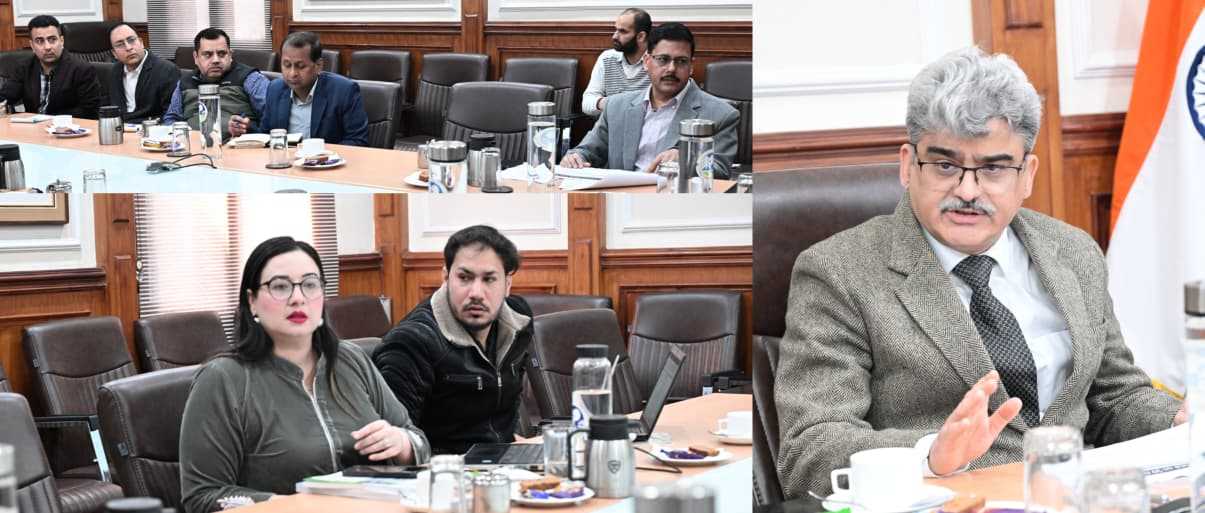
Success in competitive exams depends on multiple factors: hard work, opportunity, timing, resources, guidance, environment, and sometimes sheer luck. A single failure does not erase talent, intelligence, or capability. And yet, students often internalize failure as a personal flaw, which is far from reality.
Every year, millions of young Indians step into the world of competitive examinations—NEET, JEE, UPSC, and many others—with remarkable determination and hope. They carry not only their own dreams but also the expectations of their families, teachers, and communities. They spend countless hours immersed in textbooks, practice papers, and online lectures, often sacrificing sleep, leisure, and social interactions. Yet behind this extraordinary determination lies a silent and growing crisis: the emotional and mental burden borne by aspirants.
For most students, the journey toward competitive exams is marked by isolation and intense pressure. Long hours of preparation, frequent mock tests, and continuous comparisons with peers create a stressful environment. Students are told that every mark counts, every attempt matters, and that failure is not an option. When results do not align with their sincere efforts, many are left grappling with painful questions:
"Why am I not succeeding despite giving everything?"
This is not just an academic or professional challenge—it is a deeply personal mental health concern. The toll on emotional well-being is significant. Anxiety, stress, depression, and a sense of inadequacy are increasingly reported among aspirants, sometimes leading to tragic consequences. Parents, teachers, and society at large often focus solely on the results, unintentionally adding to the pressure, while the emotional health of the student goes unnoticed.
A System Under Pressure
The numbers illustrate the scale of the problem. According to the government’s 2024 Coaching Regulation Guidelines, India sees:
NEET: 25 lakh aspirants competing for about 50,000 MBBS seats
JEE: 40 lakh students vying for roughly 40,000 engineering seats
UPSC: 13 lakh candidates contending for around 1,000 final vacancies
The math is stark: only a tiny percentage of aspirants succeed. This is not a reflection of talent, intelligence, or effort. It is a structural limitation of the system. No amount of determination or hard work can change the fundamental fact that competition far exceeds opportunity. Yet, students are made to feel that failure is personal, which compounds their emotional strain.
Long-term reform must include measures such as
Expanding seats in key professional courses: More MBBS, engineering, and other professional seats could significantly reduce bottlenecks.
Setting fair limits on attempts: Allowing students to focus their efforts without getting trapped in repeated cycles of uncertainty can reduce prolonged stress.
Providing psychological support: Counseling services, mentoring, and mental health awareness must be integrated into coaching and schools.
Until such reforms take shape, students will continue to shoulder an overwhelming emotional burden.
The Importance of Perspective
While systemic changes are essential, guidance, mentorship, and perspective can make a critical difference for aspirants today. Personally, my mentors, Umar Sir and Suhail Sir, instilled in me lessons that have endured:
"The exam is not your life—it is only a part of it."
Another line that stayed with me was:
"If you place the exam under your feet, it will lift you. If you place it on your head, it will crush you."
These words highlight a fundamental truth: no examination should hold the power to define a young person’s worth or self-esteem. Exams are important, yes, but they are not the entirety of one’s life, potential, or identity.
Success in competitive exams depends on multiple factors: hard work, opportunity, timing, resources, guidance, environment, and sometimes sheer luck. A single failure does not erase talent, intelligence, or capability. And yet, students often internalize failure as a personal flaw, which is far from reality.
The Role of Families and Society
Parents and teachers play a pivotal role in shaping how students perceive success and failure. Supportive environments can reduce anxiety and nurture resilience. Encouraging open conversations about stress, normalizing setbacks, and highlighting alternative pathways can help aspirants manage the emotional load. Society, too, must recognize that equating an individual’s value with a test score is not only unfair but potentially harmful.
A Call for Compassion and Systemic Change
To every aspirant reading this: you are more than a score. Your worth is not measured by a rank list or a single exam. Your resilience, determination, and capacity to grow are the real markers of strength. Life offers countless paths, and one examination does not define your future.
At the same time, it is imperative that India as a nation builds a system that supports its youth rather than overwhelms them. Expanding educational opportunities, providing fair assessment structures, and integrating mental health support can ensure that competitive exams become a gateway to growth, not a source of despair.
India needs its youth confident, healthy, and hopeful—not trapped under the weight of stress and unrealistic expectations. Recognizing the emotional reality of aspirants is not an act of leniency; it is an investment in the country’s human capital and the mental well-being of the next generation.
Conclusion
The competitive examination system is a necessary part of India’s educational landscape, but it must evolve to match the emotional needs of its aspirants. Policymakers, educators, families, and society all share responsibility in creating a culture that values effort, growth, and resilience over mere results. Until then, words of guidance, perspective, and compassion—like those offered by mentors and loved ones—remain vital lifelines.
Exams are important—but life, health, and well-being are paramount. By embracing this truth, we can ensure that India’s youth do not merely survive the race of examinations but thrive in life.
Email:-------------------bhatmuskanbhatmuskan15@gmail.com

Success in competitive exams depends on multiple factors: hard work, opportunity, timing, resources, guidance, environment, and sometimes sheer luck. A single failure does not erase talent, intelligence, or capability. And yet, students often internalize failure as a personal flaw, which is far from reality.
Every year, millions of young Indians step into the world of competitive examinations—NEET, JEE, UPSC, and many others—with remarkable determination and hope. They carry not only their own dreams but also the expectations of their families, teachers, and communities. They spend countless hours immersed in textbooks, practice papers, and online lectures, often sacrificing sleep, leisure, and social interactions. Yet behind this extraordinary determination lies a silent and growing crisis: the emotional and mental burden borne by aspirants.
For most students, the journey toward competitive exams is marked by isolation and intense pressure. Long hours of preparation, frequent mock tests, and continuous comparisons with peers create a stressful environment. Students are told that every mark counts, every attempt matters, and that failure is not an option. When results do not align with their sincere efforts, many are left grappling with painful questions:
"Why am I not succeeding despite giving everything?"
This is not just an academic or professional challenge—it is a deeply personal mental health concern. The toll on emotional well-being is significant. Anxiety, stress, depression, and a sense of inadequacy are increasingly reported among aspirants, sometimes leading to tragic consequences. Parents, teachers, and society at large often focus solely on the results, unintentionally adding to the pressure, while the emotional health of the student goes unnoticed.
A System Under Pressure
The numbers illustrate the scale of the problem. According to the government’s 2024 Coaching Regulation Guidelines, India sees:
NEET: 25 lakh aspirants competing for about 50,000 MBBS seats
JEE: 40 lakh students vying for roughly 40,000 engineering seats
UPSC: 13 lakh candidates contending for around 1,000 final vacancies
The math is stark: only a tiny percentage of aspirants succeed. This is not a reflection of talent, intelligence, or effort. It is a structural limitation of the system. No amount of determination or hard work can change the fundamental fact that competition far exceeds opportunity. Yet, students are made to feel that failure is personal, which compounds their emotional strain.
Long-term reform must include measures such as
Expanding seats in key professional courses: More MBBS, engineering, and other professional seats could significantly reduce bottlenecks.
Setting fair limits on attempts: Allowing students to focus their efforts without getting trapped in repeated cycles of uncertainty can reduce prolonged stress.
Providing psychological support: Counseling services, mentoring, and mental health awareness must be integrated into coaching and schools.
Until such reforms take shape, students will continue to shoulder an overwhelming emotional burden.
The Importance of Perspective
While systemic changes are essential, guidance, mentorship, and perspective can make a critical difference for aspirants today. Personally, my mentors, Umar Sir and Suhail Sir, instilled in me lessons that have endured:
"The exam is not your life—it is only a part of it."
Another line that stayed with me was:
"If you place the exam under your feet, it will lift you. If you place it on your head, it will crush you."
These words highlight a fundamental truth: no examination should hold the power to define a young person’s worth or self-esteem. Exams are important, yes, but they are not the entirety of one’s life, potential, or identity.
Success in competitive exams depends on multiple factors: hard work, opportunity, timing, resources, guidance, environment, and sometimes sheer luck. A single failure does not erase talent, intelligence, or capability. And yet, students often internalize failure as a personal flaw, which is far from reality.
The Role of Families and Society
Parents and teachers play a pivotal role in shaping how students perceive success and failure. Supportive environments can reduce anxiety and nurture resilience. Encouraging open conversations about stress, normalizing setbacks, and highlighting alternative pathways can help aspirants manage the emotional load. Society, too, must recognize that equating an individual’s value with a test score is not only unfair but potentially harmful.
A Call for Compassion and Systemic Change
To every aspirant reading this: you are more than a score. Your worth is not measured by a rank list or a single exam. Your resilience, determination, and capacity to grow are the real markers of strength. Life offers countless paths, and one examination does not define your future.
At the same time, it is imperative that India as a nation builds a system that supports its youth rather than overwhelms them. Expanding educational opportunities, providing fair assessment structures, and integrating mental health support can ensure that competitive exams become a gateway to growth, not a source of despair.
India needs its youth confident, healthy, and hopeful—not trapped under the weight of stress and unrealistic expectations. Recognizing the emotional reality of aspirants is not an act of leniency; it is an investment in the country’s human capital and the mental well-being of the next generation.
Conclusion
The competitive examination system is a necessary part of India’s educational landscape, but it must evolve to match the emotional needs of its aspirants. Policymakers, educators, families, and society all share responsibility in creating a culture that values effort, growth, and resilience over mere results. Until then, words of guidance, perspective, and compassion—like those offered by mentors and loved ones—remain vital lifelines.
Exams are important—but life, health, and well-being are paramount. By embracing this truth, we can ensure that India’s youth do not merely survive the race of examinations but thrive in life.
Email:-------------------bhatmuskanbhatmuskan15@gmail.com
© Copyright 2023 brighterkashmir.com All Rights Reserved. Quantum Technologies